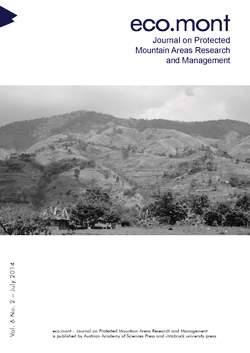
Eco.mont Vol. 6 Nr. 2, pp. 29-36, 2014/07/02
Journal on Protected Mountain Areas Research and Management

The current study focuses on conflicts about land resources. As a case in point, it discusses the ethno-demographic consequences of establishing the Rwenzori Mountains National Park (RMNP) in 1992 against the express wishes of the autochthonous population. Forced out of the mountain forests into the eastern Rwenzori foothills, the Konzo, Amba and Toro peoples have faced a strict ban on expanding settlements uphill or on using land above 2 200 m without permission. The resulting population pressure in the foothills has quickly led to tensions between the three autochthonous peoples and dozens of other ethnic groups who have joined them in recent decades. In contrast to life in the mountains, the foothills are characterized by fairly vigorous economic activity, including cement, cobalt, tea and cotton production, the main sources of employment. Ethno-social problems in western Uganda are compounded by a strengthening of the traditional kingdoms and notably by the establishment of a new Rwenzori Kingdom for the Bakonzo1, a sectioned-off enclave of the Toro Kingdom. The plethora of new kingdoms since 2009 has triggered widespread social unrest, and Bakonzo expectations of privileged access to the labour market in their newly-created kingdom are especially troubling.